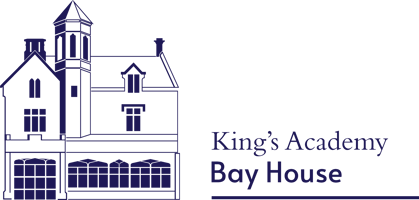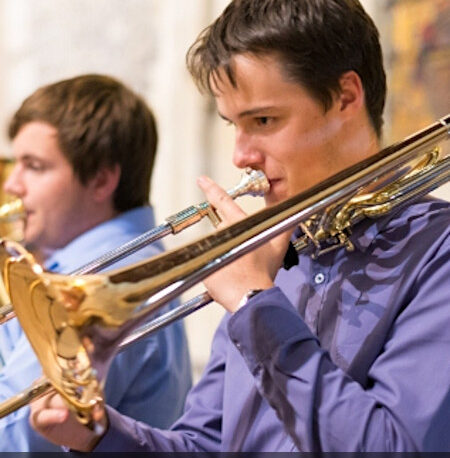Music
Co-Curricular Provision
Instrumental and Vocal Lessons
Additional lessons in: singing, violin, viola, cello, flute, clarinet, saxophone, trumpet, cornet, euphonium, horn, trombone, tuba, drums, classical guitar, guitar (acoustic & electric), base guitar are available.
These lessons are subsidised by the school and so are available at a reasonable price of £100 per instrument per term. If you are interested in applying for Instrumental/Vocal lessons, please use this link.
Ensembles and Concerts
We have a wide range of ensembles that cater for pupils and students who study a specific instrument and develop their ensemble playing and groups for all pupils with a love of music to get involved with. Ensembles include: Young Voices Choir, Band Workshop, School Orchestra, Guitar Ensemble, Brass Ensemble, function Band and Performance Club. For further information please contact Mr Langridge selangridge@kgabayhouse.uk.
There are regular performance opportunities throughout the year at either one of our School Concerts or other events such as Open Mic Nights, Soloist Concerts and Lunchtime Recitals.
Curriculum
The Music Department is a lively place to be within Bay House School. We are a well-resourced department with 3 specialist classrooms and a further 7 practice rooms.
We pride ourselves on keeping practical music-making at the centre both inside and outside of the classroom. There is always music being, whether that be one of our ensembles rehearsing for an upcoming concert, students composing their own material, or just friends making music together.
Key Stage 3
Pupils can expect to do a lot of practical music-making at Key Stage 3. They will spend time singing and playing a variety of instruments whilst studying a wide range of musical styles, genres and contexts, developing their performing, composing and appraising skills.
In year 7 pupils focus on how music is fundamentally put together and created before studying more rhythmic and harmonic development in year 8. In year 9, pupils learn about complex genres of music and develop an in-depth understanding of the use of music technology.
Key Stage 4
We have 2 different pathways that are available to pupils at KS4. One is the Music GCSE where we use the AQA examination board, the other route being the Pearson BTEC Tech Award in Music Practice.
GCSE Music
Key Information
Pupils who follow this course will have enthusiasm for and enjoy music. The course develops the skills taught in Years 7 to 9 and will suit pupils with experience of musical performance (either instrumental or vocal).
Assessment
The course is assessed 3 ways: through performing, composing and appraising music. Pupils assignments in the first two aspects comprises 60% of their final grade and the last 40% is assessed through an examination that focus on listening and Set Works.
Subject information
Performing (30%)
Performing is made up of two types of performance; one solo and one with another pupil or pupils (minimum of 1 minute in length), lasting a total of 4 minutes. The pupil chooses the music they wish to perform, although can receive advice on repertoire. To access the highest marks in this unit, pupils need to perform pieces of grade 3 and above standard.
Composing (30%)
Pupils will create their own musical works and will submit one own choice composition and one composition to a chosen set brief. The compositions may be in any style and for any instrument(s) chosen by the candidate and will evidence the skills and techniques that will have been studied throughout the course. A final recording and score/aural guide will be needed.
Understanding Music Examination (40%)
The 1 hour 30 and minute examination contains two sections. In the first section pupils must answer a range of questions based on recorded excerpts of music played on a CD. In the second section pupils will answer questions based upon a series of set works that will be studied during the course.
Is this course right for me?
Pupils looking to join the GCSE Music course should be able to play an instrument/sing and work well independently as 30% of the overall marks are awarded to performing.
All other skills are taught during the course, but a love of music is obviously important.
What can this lead to?
Music graduates have a wide range of career options available to them both inside and outside the industry, including: performer, teacher, administrator, songwriter, conductor, composer, recording engineer, manager, promoter, or music publisher. The range of roles can seem quite endless!
There are also more jobs than ever in music business related areas, such as: careers in digital marketing, social media, PR, technology, label services, ticketing and merchandising. It is also common to find music graduates in consultancy, finance, banking, music therapy and legal jobs.
BTEC Music
Key Information
Pupils who follow this course will have enthusiasm for performing and creating music and have a desire to develop their knowledge and skills of music technology.
Assessment
Pupils create a portfolio of evidence, which contributes 60% of their final grade, with the remaining 40% made up with an externally assessed assignment.
Subject information
This exciting Level 2 course, which is equivalent to GCSE, looks at key aspects of music and technology in music composition and production.
This course will give you the opportunity to develop knowledge and technical skills in a practical learning environment. You will develop key skills, ranging from rehearsing to experimenting with technology, equipment and instruments. You will also develop an understanding of the music industry.
Everyone taking this qualification will study three components, covering the following content areas:
- Exploring Music Products and Styles – exploration of the techniques used in the creation of different musical products and investigation of the key features of different musical styles and genres.
- Music Skills Development – development of two musical disciplines through engagement in practical tasks, while documenting their progress and planning for further improvement.
- Responding to a Music Brief – developing and presenting music in response to a given music brief.
Is this course right for me?
The ability to read Music is not required for this course but a love of music is a must! Excellent attendance is also required to complete all elements of the assessment portfolio. Pupils need to be organised so they can keep their assessment portfolio up to date.
What can this lead to?
Once you have completed the qualification, you will have developed valuable knowledge, practical skills and a wider understanding of the music industry. This qualification will allow you to develop your knowledge and skills through practical and creative application in a vocational context, and by responding creatively to a commercial brief.
Since you will be developing skills across a number of disciplines – such as music creation, production and performance – you will have a better understanding of whether the music industry is for you and, if so, which part of it you might want to study further.
If you decide to go on to further study of music, the best option for you will depend on the grades you have achieved in this and the other qualifications you have taken, and what you enjoy doing. You could progress to a Level 2 Technical Certificate or to a Level 3 programme, such as A Levels, a T Level or a BTEC national, either on its own or in combination with A levels.
Key Stage 5
The Music A Level focusses on the development of three components: understanding music, performing music and composing music.
Understanding Music
Students will study music from the Baroque, Classical and Romantic periods, Music for Media and Jazz in detail. They will develop their aural ability to identify musical devices from unfamiliar music as well as aurally dictate music.
Performing Music
This course provides opportunities for students to develop their performing skills on their chosen instrument by creating a solo performance lasting 6 minutes for AS, and 10 minutes for A level.
Composing Music
Students will learn a range of compositional techniques before creating a composition where they are free to choose the genre, style, instrumentation and purpose. They will also learn the rules of Bach chorale writing as they complete a two chorale exercises as part of their composition portfolio.
For more information on our A-Level Music provision please visit the course information area of our Sixth Form website.

